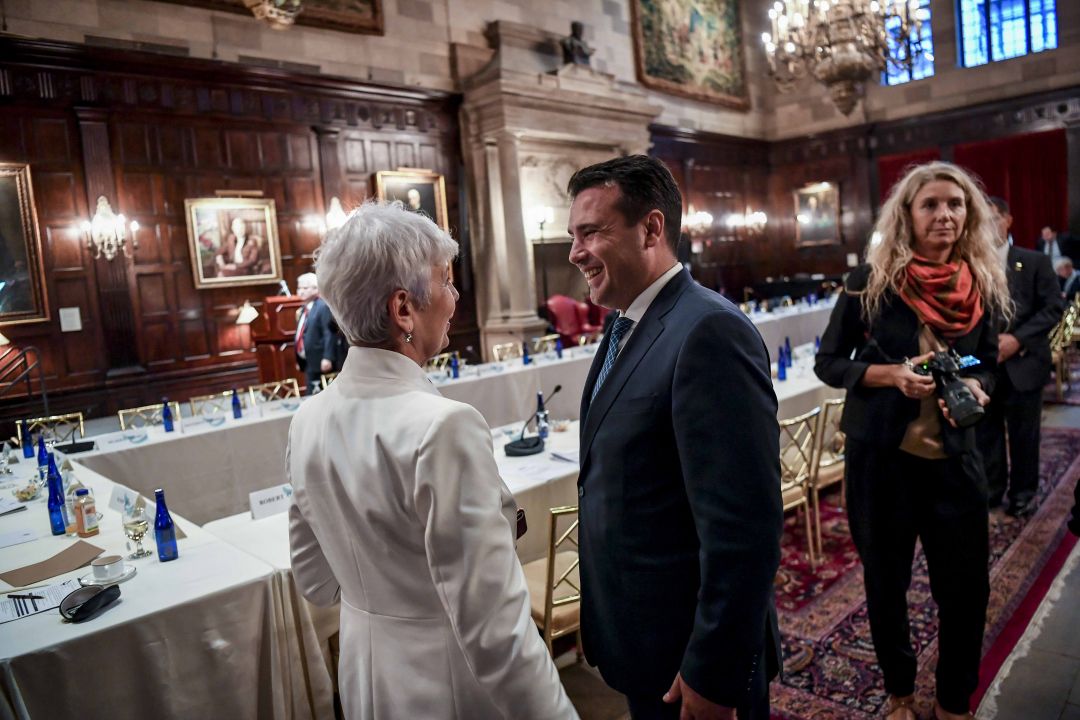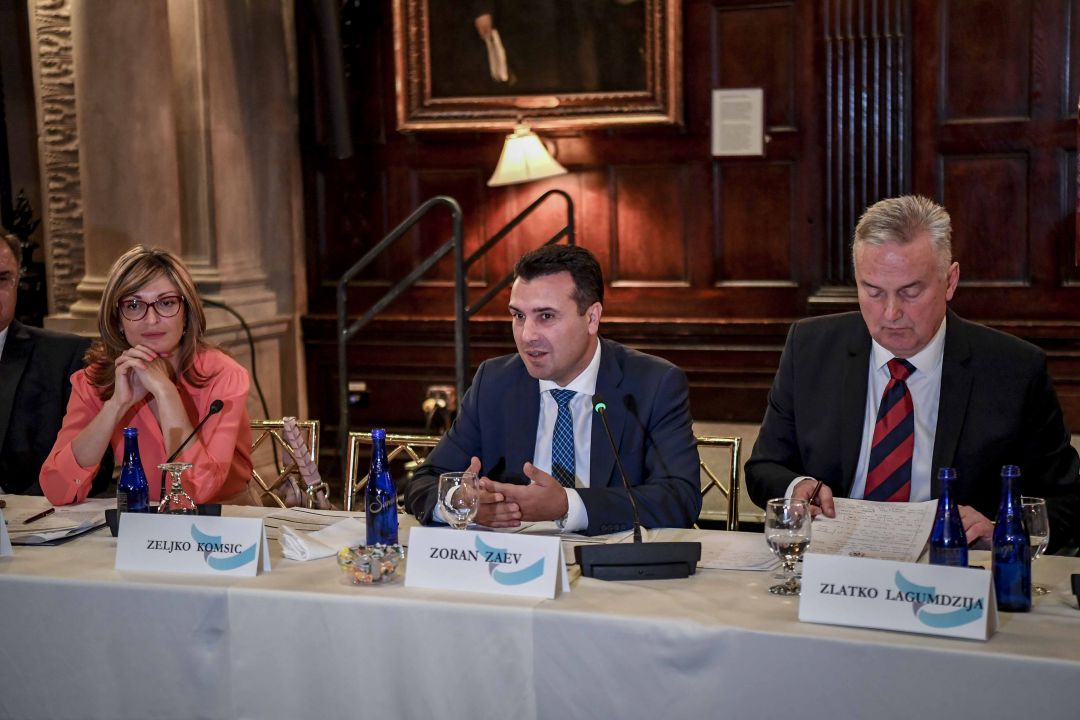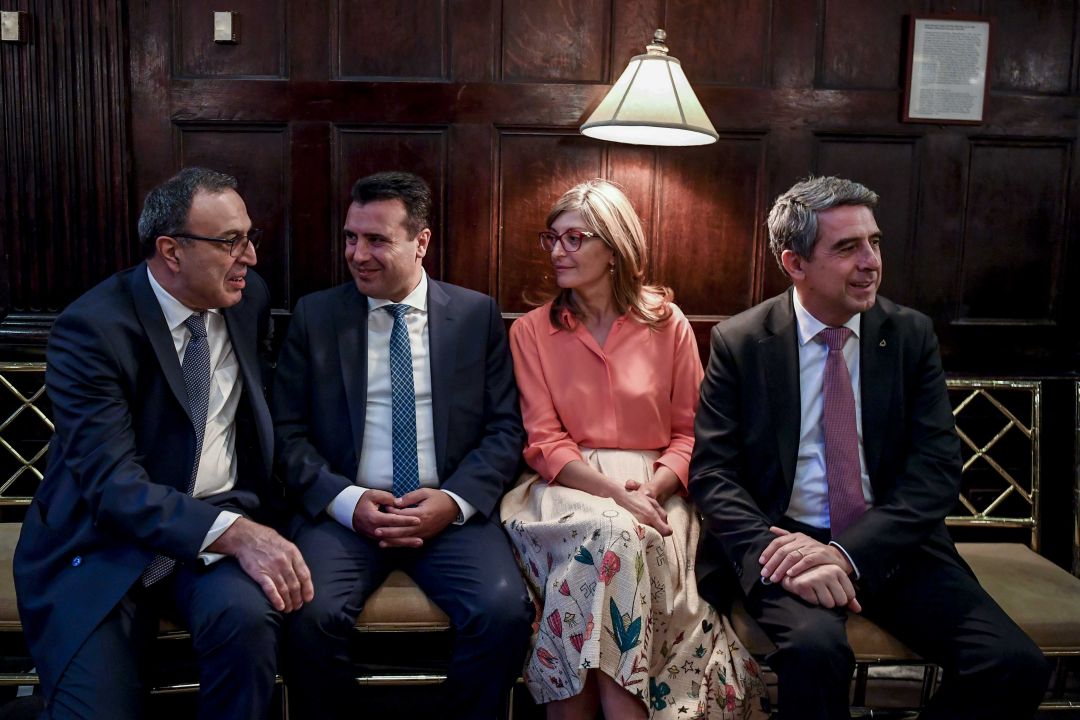„Regarding the question about the future of the Balkans, I have a positive response: The Balkan is moving in a good direction, and it is the direction leading to NATO and EU. The Balkans is a part of Europe and is changing the image of a “powder keg”, a place where political crises are generated”, said among other things the President of the Government Zoran Zaev at “The Future of the Euro-Atlantic Integrations: Where is the Western Balkans going?” debate, organized by The Nizami Ganjavi International Centre in New York, as part of the events of the side-lines of this year’s 74th UN General Assembly.
“I hereby state that the Balkan countries are progressing and working hard in order to become part of the EU family and to accept and cherish the European democratic values, as part of their own political culture and democratic tradition”. – emphasized PM Zaev at the debate, attended by current and former political leaders of the region, such as the Minister of Foreign Affairs of Bulgaria Ekaterina Zaharieva, the former presidents of Bulgaria Rosen Plevneliev and Petar Stojanov, the former Prime Minister and President of Croatia Jadranka Kosor and Ivo Josipovik and the former chairman of the Council of Ministers of Bosnia and Herzegovina Zlatko Lagumdzija, as well as other connoisseurs of the region.
As arguments for the Western Balkans progress in the Euro-Atlantic integration processes, Zaev singled out the good neighbouring relations and the regional collaboration as a mutual priority and a strategic goal of all countries in the region, as a necessity so as to fulfill the ambitions of everyone for EU and NATO integration.
“We have decided that it is time that we united around the fact that history is an integral part of our identities, but it can never take over the place of our future. It was the driving force for the Government of North Macedonia to resolve the bilateral disputes with Bulgaria in 2017 and with Greece in 2018, regardless of the criticism of the opposition”. – said PM Zaev at “The Future of the Euro-Atlantic Integrations: Where is the Western Balkans going?” debate.
Prime Minister Zaev stressed that North Macedonia does not have any open problems with its neighbours, which makes this country unique in the region in that perspective.
Zaev likewise informed the attendees about the Prespa Agreement, which was assessed as the best example of diplomacy and dialogue success that put an end to the long-lasting dispute with Greece.
During the debate, Prime Minister Zaev stated that the EU and NATO perspectives are the main incentives both for the Government and the nation, and that this made the Government to fully commit to the reforms agenda and to meet the standards for opening the negotiations for full EU membership.
At “The Future of Euro-Atlantic Integration in the Western Balkans: Where is Western Balkans going?” debate, organized by The Nizami Ganjavi International Centre in New York, as part of the events of the side-lines of this year’s 74th session of the UN General Assembly, Zaev stated: “We have delivered concrete results in every field, as it was requested in the conclusion by the European Council from June 2018 and we expect a positive decision on opening the EU accession negotiations in October 2019. Each delay of such a decision shall have many negative effects to both the country and the region. If the EU does not deliver results, its credibility and the principle of conditionality will be questioned”.
All the participants in the debate were unanimous in their opinion that delaying the date for negotiations for North Macedonia will send a very negative message to the whole region and the decision will seriously undermine the motivation of the Balkan countries to continue to maintain and strengthen the trend of maintaining stability, strengthening democracy and strengthening the conditions of economic growth and prosperity.












